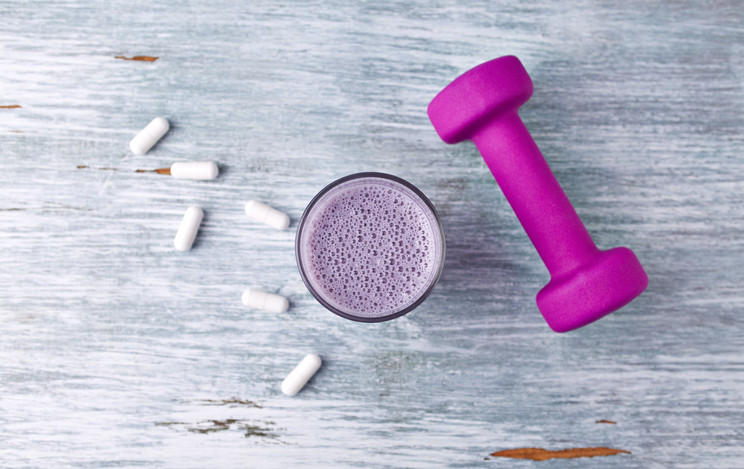
Salmonella is sneaky: Watch out

Two jobs may lower the odds of dying from Alzheimer's disease — but why?

Mastitis: What to do when your breasts are painfully inflamed

How — and why — to fit more fiber and fermented food into your meals

UTI in older women: Why postmenopausal women are susceptible to urinary tract infection, and what to do about it

Can a routine vaccine prevent dementia?

Some adults may need a measles booster shot. Who should get one and why?

Less butter, more plant oils, longer life?

Healthier planet, healthier people

Counting steps is good — is combining steps and heart rate better?
Heart Health Archive
Articles
Aspirin for heart attack: Chew or swallow?
Immediate first aid works to minimize blood clotting triggered by plaque ruptures
How should you take aspirin for a heart attack? You've always been healthy, but you seemed to run out of steam at your wife's 60th birthday dinner last week. And now your chest feels heavy, as if you're in a vise. You take some antacids, even though it's 7:00 a.m. and you haven't even had breakfast. But you get no relief, and the pain is spreading to your jaw and shoulder. You call your wife, who takes one look at you and rushes to the phone. After calling 911, she brings you an aspirin and some water.
Your wife got it right: You may be having a heart attack, and you need to get to the hospital fast. You also need to get some aspirin into your system quickly — but should you chew the tablet or swallow it?
Lifestyle changes are important even if you take medications
People who are prescribed medication for high cholesterol or high blood pressure may be more likely to gain weight and less likely to exercise, but for those who are on such medications, it’s even more important to commit to making healthier lifestyle choices.
How does cardiovascular disease increase the risk of severe illness and death from COVID-19?
Initial investigation into COVID-19 focused on its respiratory effects, but a more recent report describes serious cardiovascular complications in people with pre-existing heart disease. How does this underlying condition increase risk for these people?
The dairy dilemma
How much dairy should you consume each day? And are some dairy products or milk alternatives better for heart health than others?
These days, the supermarket dairy aisle can be tricky to navigate. Along with the nonfat, 2%, and full-fat cow's milk lining the refrigerated shelves, you'll often find a dizzying array of plant-based milk alternatives made from different nuts, beans, and grains. Even the yogurt and cheese sections now feature nondairy products, such as coconut yogurt and cashew cheese.
The expanded choices reflect the growing trend toward plant-based diets, which people embrace for a range of reasons. Some people minimize or avoid meat, dairy, and other animal-based foods because of religious reasons or concerns about environmental sustainability or animal welfare. People who are focused mainly on a heart-healthy diet know to steer clear of red and processed meat. But when it comes to dairy products, the story isn't quite as straightforward.
Have heart problems? Harvard researchers caution against marijuana use
News briefs
Smoking tobacco is a major cause of high blood pressure, heart disease, heart attack, and stroke. But did you know that smoking marijuana may also be associated with the same problems? A Harvard research review published Jan. 28, 2020, in the Journal of the American College of Cardiology found that more than two million U.S. adults with cardiovascular disease are smoking pot despite the risks, although they may not be aware of the potential link to heart problems. Studies on marijuana use have been limited, primarily because the substance has been illegal for decades. Scientists are calling for more research, since medical marijuana use is now legal in more than 30 states, and recreational use is legal in 11 states and the District of Columbia. "Until we have more answers about the connection between using marijuana and heart problems, you should consider avoiding smoking any form of pot if you have known heart disease or a high risk for a heart attack or stroke," suggests Dr. Deepak L. Bhatt, a study author and editor in chief of the Harvard Heart Letter.
Image: © Alexandrum79/Getty Images
Can lifestyle changes affect atrial fibrillation?
In particular, cutting back on alcohol may lessen the burden of this common heart rhythm disorder.
As many as six million people in the United States have atrial fibrillation, a rapid, irregular heartbeat that usually comes and goes without warning. Commonly known as afib, it can leave people lightheaded, breathless, and extremely tired. Even more worrisome is the fact that people with afib face four to five times the risk of stroke than those without the condition.
Medications and procedures can help ease afib symptoms and reduce the risk of stroke. "But people frequently ask me and my colleagues whether any lifestyle factors can make a difference in afib," says Dr. Paul Zei, director of the Comprehensive Atrial Fibrillation Program at Harvard-affiliated Brigham and Women's Hospital. The answer is yes — and a provocative new study has strengthened the evidence about the role of alcohol in people with afib (see "Does abstinence make the heartbeat stay steady longer?").
Grain of the month: Oats
Among all the grains, oats appear to be the most effective when it comes to lowering cholesterol. In fact, back in 1997, oatmeal was granted the first food-specific health claim permission by the FDA, based on research showing that soluble fiber from oats lowers the risk of heart disease.
Soluble fiber, which dissolves in water, forms a gel in the intestines. This gel traps some of the cholesterol in your body, so it's eliminated as waste instead of entering your arteries. Some evidence also suggests that eating oats helps regulate blood sugar levels and helps you feel full.
Signs of heart disease in 16th-century Greenland mummies
Research we're watching
People often think of heart disease as a modern-day affliction, caused mainly by our contemporary diet and lifestyle habits. But researchers have found evidence of stiff, narrowed arteries, or atherosclerosis — the telltale sign of heart disease — in ancient mummified remains found in different parts of the world.
The most recent of these discoveries, described Dec. 27, 2019, in JAMA Network Open, comes from four individuals who died in Greenland some 500 years ago. Their bodies were of special interest because their diets consisted primarily of fish and marine mammals, which are rich sources of omega-3 fatty acids. Around 50 years ago, the low heart attack rates among native Greenland Inuit spurred the original interest in omega-3s.
Experimental drug lowers lipoprotein(a), a suspect in heart attacks
Research we're watching
A new kind of drug given by injection can lower blood levels of lipoprotein(a), or Lp(a), a fatty particle linked to a heightened risk of heart attack and narrowing of the aortic valve, according to a study published January 1 in the New England Journal of Medicine.
Up to one in five people has a very high level of Lp(a), which is nearly completely determined by a person's genes. Lp(a) particles are similar to the better-known LDL cholesterol particles but with an extra protein coiled around each particle.
Common pesticide linked to higher risk of death from heart disease
Research we're watching
Exposure to pyrethroids, a common class of insecticides used to kill lice, mosquitoes, and other pests, may raise a person's risk of cardiovascular disease and early death, a new study suggests.
Researchers measured levels of a breakdown product of pyrethroids in urine samples from 2,116 adults who were part of a large national health study. The samples were obtained between 1999 and 2002, when the participants were about 43 years old, on average. After a median follow-up of 14.4 years, people with the highest exposure to pyrethroids were three times more likely to die from heart disease than those with the lowest exposure to the chemicals. The study was published online Dec. 30, 2019, by JAMA Internal Medicine.

Salmonella is sneaky: Watch out

Two jobs may lower the odds of dying from Alzheimer's disease — but why?

Mastitis: What to do when your breasts are painfully inflamed

How — and why — to fit more fiber and fermented food into your meals

UTI in older women: Why postmenopausal women are susceptible to urinary tract infection, and what to do about it

Can a routine vaccine prevent dementia?

Some adults may need a measles booster shot. Who should get one and why?

Less butter, more plant oils, longer life?

Healthier planet, healthier people

Counting steps is good — is combining steps and heart rate better?
Free Healthbeat Signup
Get the latest in health news delivered to your inbox!
Sign Up











